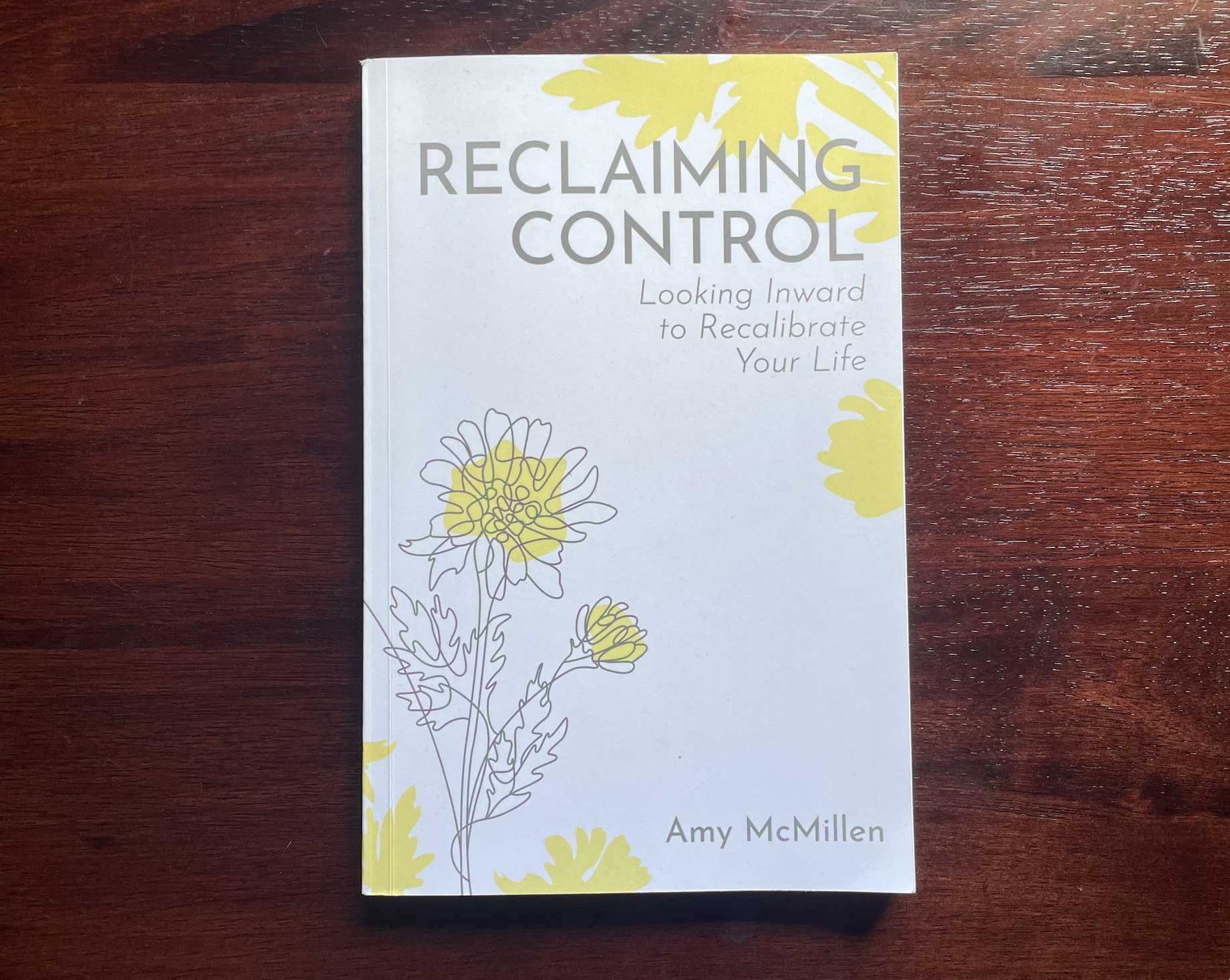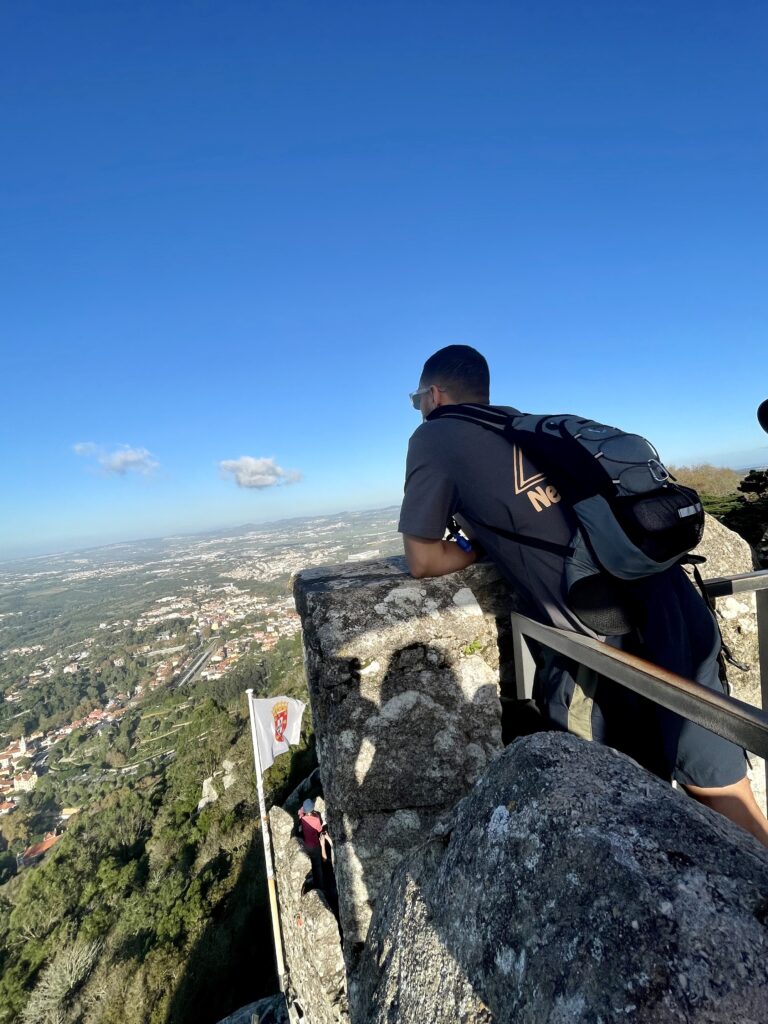There’s always a level of subjectivity and personal experience that goes into writing a book review, at least for me. That said, I try to consider this while not going too deep into my own experiences. For some books it’s pretty easy; others, not so much. Reclaiming Control: Looking Inward to Recalibrate Your Life undoubtedly falls into the latter category.
I suppose I’ll continue prefacing the review by giving you a bit more information about how I came across the book and why I ultimately decided to pick it up.
It was while reading The Pathless Path by Paul Millerd that I first heard of Amy McMillen and Reclaiming Control. Millerd was writing about how he was inspired by many of McMillen’s thoughts around being an active agent in one’s life.
Given that I was so captivated by Miller’s journey and what he had to say about it all, I thought, why not?
Reclaiming Control did not disappoint.
Basically, it’s about the process of going from a space in which life is passing by your very eyes to one in which you are aware of your thoughts and feelings and have much more control over your decisions.
There’s a bit of travel worked in there, too. Not about destinations, but the role that travel can play in creating a “you” that you love and feel connected with.
Though she does not name it as such throughout the book, McMillen starts off writing about the golden handcuffs, a phenomenon I feel many of us are growing increasingly familiar with. It’s essentially having it all—the good job, a good group of friends, perhaps a support system, comfort, safety, etc. While feeling a void, an emptiness that one struggles to describe. She writes, “What was I complaining about? I’m living the good life. I’m selfish and entitled for even thinking otherwise.”
Perhaps you’re reading this thinking, “Wow, that sounds incredibly familiar!” I certainly was…
This was the first page and I was already hooked. Mostly because it’s what I’ve been feeling for quite some time now. Though I would love to get paid more, my job is secure and I’m financially comfortable enough to do some traveling. I’m in a seemingly stable relationship, I have a great support system here at home—I could go on and on…
And yet, I don’t feel happy. I constantly feel like there has to be more out there.
In Reclaiming Control, readers witness how McMillen used to convince herself she must be ungrateful. She also takes us through her healing process and what she did about those feelings.
In this way, she’s quite vulnerable—one of the book’s greatest strengths.
Much of Reclaiming Control is actually about vulnerability and feelings. McMillen not only urges the reader to open themselves up to vulnerability and “free [their] feelings”, but also models exactly what this looks like by sharing a very personal and traumatic experience. I won’t go into the depths of it here, but essentially she has a significant health scare that caused immense physical and emotional pain.
Perhaps it is because she shares the story in such graphic detail or her way of making us feel like she’s writing just to us, but you almost want to start journaling about the emotions you might be masking in your own life and the events that potentially trigger them. To say I appreciated her sharing this would be an understatement.
“I told myself that this time, the traveling wasn’t for the new locations themselves”
One of the biggest things I took away from Reclaiming Control is McMillen’s thoughts on travel.
She discusses her perception of travel and how it shifted over time. From one that’s common among many—the idea of travel as providing an escape to find some inner part of one’s self—to something that’s much more difficult to achieve, but more in line with how things actually occur when one decides to ditch their job and head out.
In response to a friend who seems to be mocking her decision, she writes:
“What I don’t tell her is that I am not taking a short-term journey to find myself; I decided to take a life-long journey to create myself. To contemplate, to design, experiment and build the person I want to become—day by day, decision by decision. After a whirlwind of being told what to do and an entire lifetime of being on a hamster wheel, I needed concentrated time for freedom and creativity. To recalibrate, to be still, and rise up with a clear heart and mind”
No single passage in Reclaiming Control impacted me more than this one. I found myself reading and rereading it and couldn’t stop thinking about how much this relates to what I intend on doing.
I will admit, this hasn’t always been as clear to me as it is now. I used to question whether I’m running away from something and would also perceive travel as potentially helping me find myself. McMillen’s book, among many others, have illustrated that this just isn’t the case.
The emotional issues and tensions we face here (where ever that is for you!) don’t just disappear because we place ourselves in a new environment. As she puts it, “I realized that how I spent my free time before I quit my job was still how I spent my free time after. Beyond the beautiful places I visited, people I connected with, and projects I started, I didn’t magically change—surprise!”
This is so crucial, and something I don’t think gets spoken about enough.
Another related point is this idea of the arrival fallacy, or “the false hope that ‘reaching some future destination will bring lasting happiness’”. Though this wasn’t coined by McMillen (it was Harvard psychologist Tal Ben-Shahar), I find value in the way she weaved this into her story because it made me reflect on what I’ve been thinking when I envision a life of travel. In other words, seeing these words, I began to scrutinize even more what I’m searching for in travel and the feelings I think it may cause me to feel.
Which leads to the last point: McMillen’s idea of not chasing things, goals, or destinations, but instead asking yourself “How do you want to feel?”
This question, alone, encouraged me to reflect so much. At times, I can take-for-granted the state of mind I think travel might put me in. To be fair, it has put me in the same positive and grounded mindset, time and time again. But this is a slippery slope, especially considering I’ve never been unemployed and traveling.
In this section, I kept asking myself “how do I want to feel?”
The answer to that was clear: creative, autonomous, semi-uncomfortable, and introspective.
So…I ask you: How do you want to feel?
Till Next Time Travel Friends!







